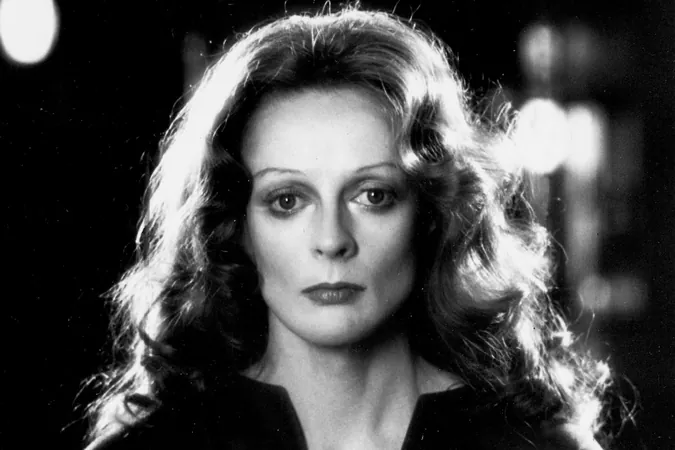
Maggie Smith: A Timeless Talent Who Shaped Theatre History Before Fame
2024-09-30
Maggie Smith, the renowned actress known for her captivating performances on stage and screen, has been a treasure in the world of theatre long before she became a household name. Reflecting on her illustrious career, it’s clear that her impact extends far beyond her fame.
Early Career and Breakthrough
In 1964, during the early days of Britain’s National Theatre, Smith delivered a memorable performance as Myra Arundel in Noel Coward’s *Hay Fever*. With just one line — "this haddock’s disgusting" — she elevated the play, showcasing her impeccable timing and comic prowess. This moment may not have brought the house down, but it carved out a lasting legacy for her in theatre history.
Six years later, she took on the challenging role of Hedda Gabler in a production directed by the legendary Ingmar Bergman. Here, Smith's performance was a haunting exploration of loneliness, breathing new life into the character and evoking sympathy rarely felt for Hedda. Her delivery of yet another iconic line about the Dolomites demonstrated her extraordinary ability to blend comedy with drama seamlessly.
Rise to Stardom
Smith began her journey in the performing arts with Broadway's *New Faces of 1956* and subsequently graced the West End with her charm and talent. Her breakthrough came when she starred in Jean Kerr's *Mary, Mary*, solidifying her status as a star and paving the way for her eventual collaboration with Laurence Olivier at the National Theatre, where she played Desdemona in *Othello* and left an indelible mark on high comedy.
Throughout her time at the National Theatre, she dazzled audiences in plays like *The Recruiting Officer* and *The Beaux' Stratagem*, directed by William Gaskill. Notably, her marriage to fellow actor Robert Stephens not only added intrigue to her personal life but also captured the public's imagination.
Continued Success and Versatility
Smith’s later performances continued to solidify her legacy. Her portrayal of Cleopatra at the Stratford Festival in Ontario revitalized her career, demonstrating that her talents were far-reaching, from Shakespearean heroines to classic comedies. Audiences treasured her interpretations of Beatrice in *Much Ado About Nothing* and Titania in *A Midsummer Night’s Dream*, both of which showcased her versatility and depth as an actress.
The queen of drama, Smith aged gracefully, bringing life to iconic roles such as Lady Bracknell in *The Importance of Being Earnest*. She even took her brilliance to the small screen with roles in series like *Downton Abbey*, capturing the essence of English aristocracy through clever dialogue and sharp wit.
Legacy and Impact
Her portrayal in Alan Bennett’s *Lady in the Van* remains one of her finest screen performances, confirming that her talent transcends generations. Moreover, her participation in *Nothing Like a Dame*, along with other theatrical greats, illustrates the camaraderie and siblinghood among actresses in an industry that continues to thrive.
In summary, Maggie Smith is not just an actress; she is a cultural icon whose performances have shaped the theatrical landscape. Her ability to infuse originality into every role and evoke genuine emotion has solidified her status as one of the greatest treasures of British theatre. As we look forward to her future projects, one thing remains certain: Maggie Smith’s legacy will endure, enchanting audiences for generations to come.









 Brasil (PT)
Brasil (PT)
 Canada (EN)
Canada (EN)
 Chile (ES)
Chile (ES)
 España (ES)
España (ES)
 France (FR)
France (FR)
 Hong Kong (EN)
Hong Kong (EN)
 Italia (IT)
Italia (IT)
 日本 (JA)
日本 (JA)
 Magyarország (HU)
Magyarország (HU)
 Norge (NO)
Norge (NO)
 Polska (PL)
Polska (PL)
 Schweiz (DE)
Schweiz (DE)
 Singapore (EN)
Singapore (EN)
 Sverige (SV)
Sverige (SV)
 Suomi (FI)
Suomi (FI)
 Türkiye (TR)
Türkiye (TR)